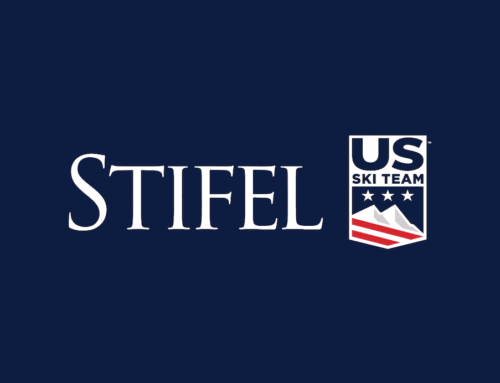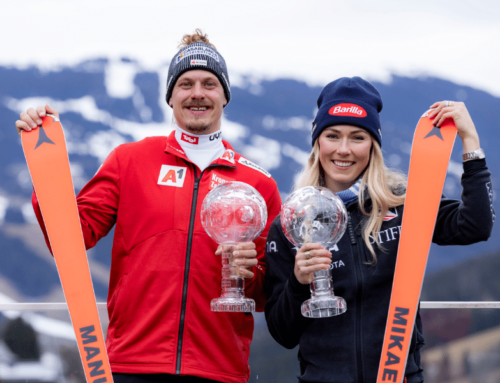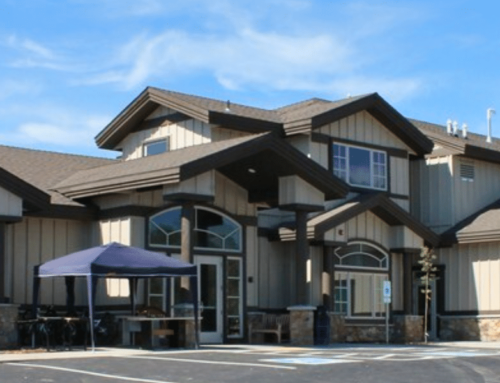Crazy like a fox: Manny Osborne-Paradis’ retirement ends the era of the Canadian Cowboys
He placed this hand-written message next to his hotel bed early in his World Cup racing career.
“Is today a great day to die?”
He’d wake up on race day, look at the note and say to himself, “Yes, today’s a perfect day.”
Manuel Osborne-Paradis – “Manny” to most everyone – the charismatic, fearless and give-it-all downhill racer believed this was his advantage. To tap into a risk-all mindset that most refused or ignored in a sport surrounded by inherent risks. “I didn’t have the talent yet,” he said in a phone interview shortly after his retirement announcement last week. “I needed to take the most risk … and nine times out of 10 I’d get away with it.”
The 36-year-old who now calls Invermere, B.C., home wrapped up a 13-year career full of the highest of highs and the lowest of lows, ending the era of the Canadian Cowboys, a small elite group of Canadian ski racers who’s results rival that of the Crazy Canucks era in the 1980s.
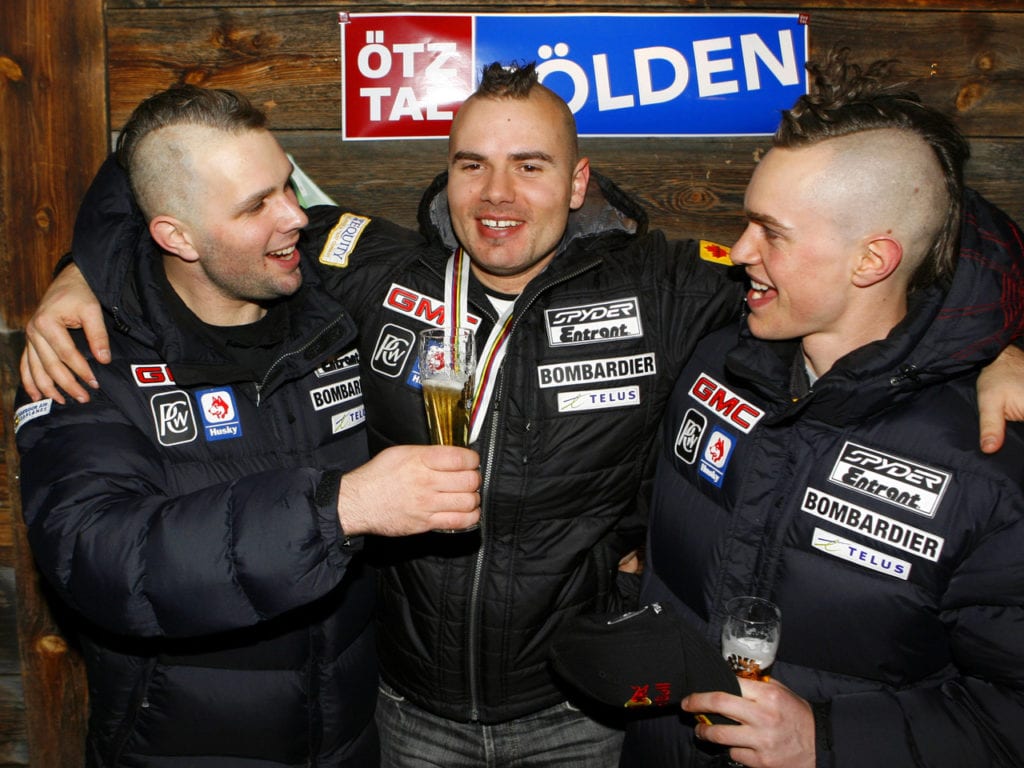
The youngest team on the circuit in the mid 2000s, the Canadian Cowboys surprised some in the ski world when they suddenly were in the podium hunt on most race weekends, and in most racing disciplines. With Mike Janyk (slalom) and François Bourque (giant slalom), John Kucera (GS, super G, downhill) and the speed team of Erik Guay, Jan Hudec, Ben Thomsen, Osborne-Paradis and eventually Dustin Cook chasing super-G and downhill hardware, it was a stretch for the ages for Canadian ski racing.
That group of men produced seven world championship medals, including three gold medals, to go along with dozens of World Cup podium finishes and an overall discipline title.
“We made each other better every day,” Manny said. “We were making up the rules as we went, banding together as leaders as there was nobody on the team that could show us the way. We were a bunch of first-timers learning the way together.”
“This new mantra of ‘gaining experience’ was not part of our plan, we showed up at the World Cup for podiums … and we were getting them. My first ever World Cup in Chamonix, my goal was to be in the top 30, and it was clear to me, or at least what I understood, was that if I wasn’t then I’d be going back home. I needed to show them [coaches] that I could be a top 30 racer. The fire was underneath me, that’s for sure.”
Mountain tops and valley floors
Lake Louise, Alberta, was the site of both extreme highs and lows for Osborne-Paradis. In November 2006, he put the leading ski nations on notice finishing second as a 22-year-old in the super G in front of a home crowd, with an aggressive yet light-on-his-edges touch. But 12 years later he suffered a gruesome leg injury on the same course in November 2018, an injury that ultimately ended his career. During a training run on a turn he’d successfully navigated hundreds of times he hit some soft snow, got hooked with the safety netting and snapped his tibia and fibula in multiple places. Erik Guay was in the start gate area at the time and was severely spooked by the crash, retiring two days later.
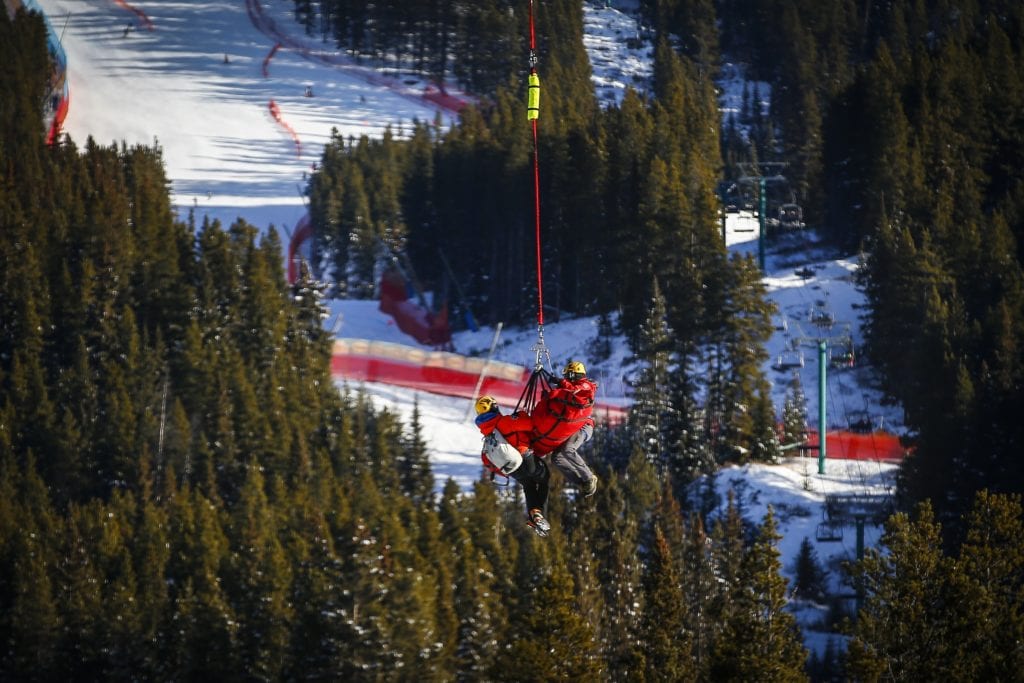
But Osborne-Paradis was no stranger to uphill battles and injury comebacks and had his sights clearly set on regaining his health and confidence.
A crash in Chamonix, France, in 2011 sidelined Osborne-Paradis for a year-and-a-half with torn knee ligaments and a broken leg. Perhaps as bad as the injury itself, a paperwork error was made and his world rankings slipped far outside the world top 30, forcing him to rebuild his rankings profile.

But he soldiered on during an agonizingly long journey to gaining his previous form, reaching a pinnacle of sorts when he claimed a super G bronze at the World Championships in 2018, sharing the podium with teammate and race winner Erik Guay.
‘Is the goal of an Olympic medal worth it?‘
“My leg actually feels great, I’m sure there would be some pain involved but I planned this comeback because I knew that I could do it,” he explained. “To be honest, you’re always battling small injuries all the time. The small ones are almost harder to ski fast as you need to race with them and battle confidence. With the big injuries you get time off, you’re assessed by the medical team constantly and you don’t return until you’re better. Really you’re always skiing injured.”
“But there were other factors this time.”
And as we know, the world is a different place.
“These guys [men’s World Cup speed team] just did a nine-week camp with a two-week quarantine and are now planning to be in Europe for the whole winter,” he said.
Osborne-Paradis reminisced of a time when he could fly home between races to see his wife, Lana, and now-daughter Sloane, 3, and infant boy, Toby, but with restrictions making travel to Europe significantly more difficult, it might have been the last nail in the coffin.
“My priorities didn’t really change,” he said when asked if being a family man changed his perspective and approach. “Yes another mouth to feed, another person to ski fast for, another kid in my family to show that there are no boundaries and of the infinite success that you can have. But now I can’t fly home after a couple races or for New Years.”
Ultimately, Osborne-Paradis had to look at current world realities and ask himself the tough questions. “I’ve been selfish, for sure, but there’s a limit to the selfishness. There’s just no way that we [family] could do that. Is the goal of an Olympic medal worth it? It just didn’t seem like it.“
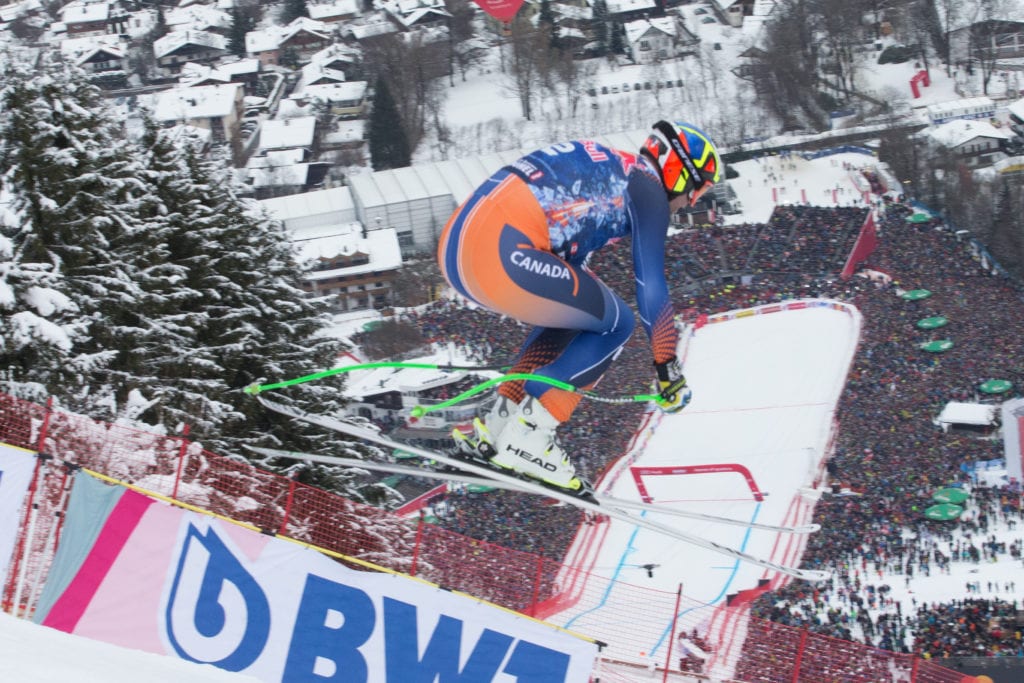
“As I made this decision I felt so liberated. Going 140, 150 kilometres an hour, doing the camel bumps [Val Gardena, Italy], the Mausefalle [on the Hahnenkahm] every year … those are always around the corner and you have to continually engage and face your fears head on. It takes a lot of mental energy knowing that every year you’re going to be terrified on multiple occasions and you may be injured almost every moment. It get’s harder and harder to do.”
Manny vs the mountain
Osborne-Paradis took pride in a balanced approach to relationships with teammates, coaches, competitors and the media over his career. And he never lost sight of the ultimate competition: the mountains.
“Racing for me was always about you and the mountain … your time is the only thing you have control over, so I was pushing the mountain and pushing myself and whatever place that got me, fine.”

“I was competitive when it mattered, and I think gracious when I was beat, celebrating peoples successes not only just with my teammates – like when Erik won the overall and Jan’s Olympic podium – but also guys like Marco Buechel and Aksel and the Austrians.”
Looking to the future, the affable and popular figure on the tour, participated in a Harvard Business School program which matches professional athletes with MBA students. Now he’s currently completing a Royal Roads University undergrad business degree.
“Ski racing has taught me a million lessons … how I look at it is that I learned through failure. Ski racing is ultimately a sport of failure. I had 180 starts [World Cup] with 13 podiums, so I have a less than 10 percent success rate,” he said with a chuckle.
In a reflective moment, Osborne-Paradis summed up his career highlight to relationships.
“I’m most proud of the group of guys I got to ski with. Families, wives, kids … literally we lived and breathed each others lives for eight months every year.”
“We all grew up together. Boys just doing our thing.”
